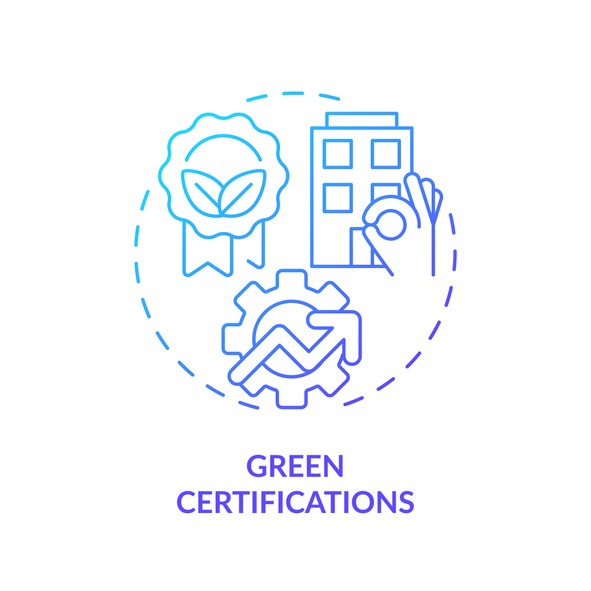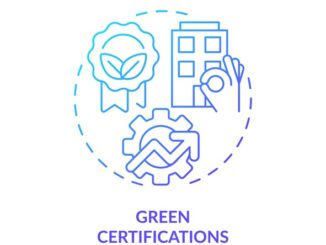
Avoid greenwashing and sell eco products more easily by understanding what the labels mean
As environmental awareness and sustainability become increasingly important aspects of business operations, the demand for eco-friendly cleaning products is on the rise. Consumers and businesses alike are seeking ways to reduce their environmental footprint, and one effective means to achieve this is through the use of certified green cleaning products. Green cleaning certifications play a pivotal role in ensuring the quality and authenticity of these products, giving businesses confidence that they are making environmentally responsible choices.
Understanding green cleaning certifications
Green cleaning certifications are third-party validations that confirm a product’s adherence to rigorous environmental standards. These certifications are essential in establishing a product’s eco-friendly credentials, assuring customers that it meets specific criteria for sustainability, safety, and performance.
In the UK, several reputable certification bodies oversee and award green cleaning certifications. Some of the most recognised ones include:
- EU Ecolabel: The EU Ecolabel, also known as the Flower Label, is a widely recognised symbol of environmental excellence. Products bearing this label have undergone rigorous testing to ensure they meet strict environmental criteria.
- Cradle to Cradle Certified™: This certification evaluates products based on their environmental impact throughout their entire lifecycle, from production to disposal. It promotes the use of safe and sustainable materials.
- The Carbon Trust Standard: While not exclusively for cleaning products, the Carbon Trust Standard certifies a company’s efforts to reduce its carbon footprint, which indirectly impacts the environmental impact of its products.
- Allergy UK Seal of Approval: This certification focuses on products’ allergen and asthma-friendliness, ensuring they are safe for people with sensitivities while maintaining eco-friendly attributes.
- The Vegan Society Certification: This certification is for products that do not contain any animal-derived ingredients and have not been tested on animals. While it may not specifically indicate environmental friendliness, it aligns with ethical and sustainable practices.
- The British Allergy Foundation Seal of Approval: Similar to the Allergy UK Seal of Approval, this certification signifies that a product has been tested and found to have low allergenicity, which can be important for maintaining indoor air quality.
- BREEAM and LEED: While not certifications for products themselves, these green building certification programs often award points or credits for using eco-friendly cleaning products. Businesses and facilities pursuing BREEAM or LEED certification can benefit from using certified products as part of their overall sustainability strategy.
Why choose eco-friendly cleaning products?
Selling eco-friendly cleaning products to businesses means understanding what the benefits of these products are to your customers. After all, they’re likely to come with a higher level of investment, so it’s important to be able to communicate why they are worth the higher price tag. Key benefits include:
- Reduced Environmental Impact: Certified green cleaning products are formulated to minimise harm to the environment. They often have reduced levels of harmful chemicals and utilise eco-friendly packaging materials, contributing to a lower carbon footprint.
- Improved Indoor Air Quality: Many green cleaning products are designed to have low or no volatile organic compounds (VOCs), which can be harmful when released into the indoor air. Using certified products can lead to healthier indoor environments.
- Safety Assurance: Green cleaning certifications guarantee that products are safe for use, reducing the risk of accidents and health issues for cleaning staff and building occupants.
- Meeting Regulatory Requirements: In some cases, using certified green cleaning products may be a requirement to meet local or national environmental regulations or qualify for certain green building certifications, such as BREEAM or LEED.
Some customers may worry that green cleaning products may not perform as effectively as traditional ones. However, advances in green cleaning technology have significantly improved product performance over the years, and modern options have often been proven to be as effective as their environmentally damaging counterparts.
Green cleaning certifications are invaluable tools for businesses in the UK aiming to reduce their environmental impact while maintaining high standards of cleanliness and hygiene. By choosing certified eco-friendly cleaning products, companies can meet their sustainability goals, ensure the well-being of their staff and building occupants, and contribute to a greener and healthier future. While there may be initial challenges, the long-term benefits of using certified green cleaning products far outweigh any drawbacks, making them a wise and responsible choice.


Be the first to comment